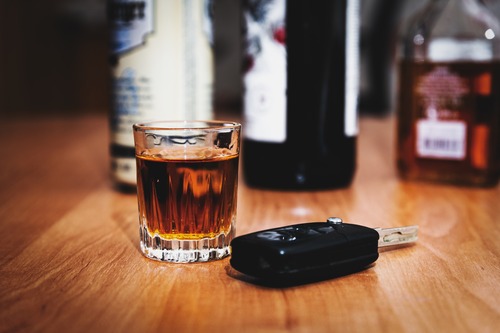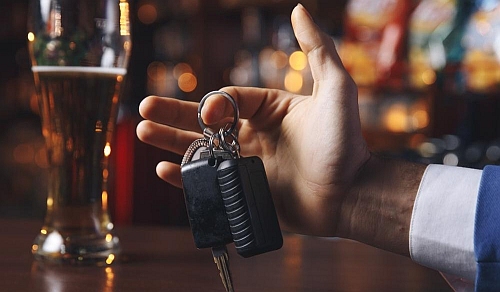Field Sobriety Tests in Indiana: What You Need to Know
At Rathburn Law Office P.C., P.C., we focus on defending individuals charged with DUI offenses across Indiana. With decades of experience in DUI defense, our team understands both the science behind chemical testing and the legal standards that govern field sobriety tests. We are committed to protecting our clients’ rights, challenging weak evidence, and delivering strong defense strategies tailored to each case. Our goal is simple: to help clients move forward with their lives while minimizing the impact of a DUI arrest.
Field sobriety tests are often the first step police officers use to decide whether to arrest someone for drunk driving in Indiana. These roadside tests, including the horizontal gaze nystagmus test, the walk and turn test, and the one leg stand test, are designed to measure balance, focus, and coordination. While law enforcement relies on them to build probable cause, the results are not always accurate and can be influenced by stress, medical conditions, or poor testing conditions.
In this blog, you will learn how field sobriety tests work in Indiana, what officers look for during each test, the legal consequences of failing them, and how working with an experienced Indianapolis DUI defense attorney can help protect your rights and challenge the results.
What Are Field Sobriety Tests?
Field sobriety tests are physical and cognitive assessments used by law enforcement officers in Indiana to identify impaired drivers during a traffic stop. These tests are designed to provide officers with objective measures of coordination, balance, and focus before moving forward with chemical testing.
Standardized Field Sobriety Tests
The National Highway Traffic Safety Administration developed three standardized field sobriety tests. These include the horizontal gaze nystagmus test, the walk and turn test, and the one leg stand test. Police officers use these tests because they are recognized nationwide as indicators of impaired driving. Each test looks for specific cues such as inability to follow directions, loss of balance, or failure to complete steps correctly.
Non-Standardized Sobriety Tests
Along with standardized tests, law enforcement may use other tests that are not officially validated. Examples include asking a driver to recite part of the alphabet, touch their nose, or perform mental calculations. These non-standardized field tests can be less reliable since they do not have established scoring measures or scientific backing.
Role in Indiana DUI Cases
In Indiana DUI law, field sobriety tests often serve as the first step in establishing probable cause for further testing such as a breathalyzer test, urine test, or blood draw. While the results of these tests can contribute to DUI charges, they are not conclusive evidence of a DUI offense. A DUI defense lawyer can challenge the accuracy of the officer’s observations, especially if medical conditions or environmental factors influenced performance.
The Three Standardized Tests and How to Perform Them
Indiana law enforcement officers use three standardized field sobriety tests developed by the National Highway Traffic Safety Administration to measure balance, coordination, and the ability to follow directions. These tests are the horizontal gaze nystagmus test, the walk and turn test, and the one leg stand test.
Horizontal Gaze Nystagmus Test
The horizontal gaze nystagmus test, also called the HGN test, measures involuntary eye movements when a person tracks an object. A police officer holds a pen or small light in front of the driver’s face and asks them to follow it with their eyes. The officer looks for jerking movements, failure to track an object smoothly, and eye movement at maximum deviation. While this test is widely used, medical conditions and vision issues can affect the results.
Walk and Turn Test
The walk and turn test, also called the WAT test, is a divided attention test. The driver must walk nine heel to toe steps along a straight line, turn on one foot, and take nine steps back. Officers watch for missed heel to toe steps, stepping off the line, using arms for balance, or taking the incorrect number of steps. Conditions such as uneven pavement, fatigue, or nervousness can make this test more difficult even for sober drivers.
One Leg Stand Test
The one leg stand test, also called the OLS test, requires the driver to lift one foot six inches off the ground, keep arms at the sides, and count out loud until told to stop. Police officers score performance by looking for swaying, hopping, using arms for balance, or putting the foot down. Balance problems, age, weight, and medical conditions can create mistakes that officers may treat as signs of impaired driving.
Why Performance on Sobriety Tests Is Not Always Proof of Impairment
Field sobriety tests are often used to justify further testing or DUI charges, but poor performance does not always prove that a driver is impaired. Many outside factors can affect how a person performs during these roadside evaluations.
Human Factors and Stress
Stress plays a major role during a traffic stop. A driver may feel nervous, anxious, or intimidated by the presence of law enforcement officers. These human factors can cause shaky balance, missed steps, or difficulty following directions. Even without alcohol or controlled substances in the system, stress alone can create mistakes that look like impaired driving.
Medical Conditions and Physical Limitations
Certain medical conditions make it harder to complete field tests. Inner ear problems, injuries, or chronic conditions that affect balance or motor skills can cause a driver to sway or stumble. Older drivers or individuals with higher body weight may also struggle with the one leg stand or the walk and turn test. These conditions have nothing to do with blood alcohol content, but officers may still interpret mistakes as signs of intoxication.
Environmental and Testing Conditions
Field sobriety tests are often conducted on uneven pavement, in poor lighting, or during bad weather. These environmental conditions create challenges that increase the chance of error. A driver performing the walk and turn test on gravel or a sloped road may step off the straight line, even while completely sober.
Limits of Officer Observations
Field sobriety tests depend heavily on the judgment of the police officer. An officer’s training, expectations, or personal bias can influence how performance is scored. What one officer considers a mistake, another may not even notice. This subjectivity makes it possible for sober drivers to be incorrectly identified as impaired.
Legal Consequences of Failing Field Sobriety Tests in Indiana
Failing field sobriety tests in Indiana can lead to further testing and criminal charges. The outcome depends on test results, chemical test findings, and prior driving history.
Probable Cause for Further Testing
When a driver does not perform well on the horizontal gaze nystagmus test, walk and turn test, or one leg stand test, police officers often claim probable cause for additional testing. This can include a breathalyzer test, urine test, or blood draw. Indiana’s implied consent law requires drivers to submit to these chemical tests, and refusal can result in an automatic driver’s license suspension under Indiana Code § 9-30-6-1.
First DUI Offense
A first DUI offense in Indiana is usually charged as a Class C misdemeanor under Indiana Code § 9-30-5-1. Penalties can include up to sixty days in jail, a fine of up to five hundred dollars, and a driver’s license suspension. Judges may also order community service or substance abuse education. Even with no prior record, a DUI conviction can affect employment and insurance.
Repeat and Felony DUI Charges
A second DUI offense or a third DUI within seven years can lead to harsher penalties. Under Indiana Code § 9-30-5-3, repeat offenders face longer jail sentences, higher fines, and longer license suspensions. A third DUI offense can be charged as a felony, bringing the possibility of prison time and long-term criminal consequences.
Collateral Consequences
Beyond jail time and fines, DUI convictions create lasting problems. A criminal record can make it harder to find work, keep professional licenses, or travel internationally. Insurance companies may raise premiums or cancel coverage after a DUI offense. Even after completing court requirements, drivers often face ongoing costs and restrictions.
How a DUI Defense Attorney Challenges Sobriety Tests
At Rathburn Law Office P.C., P.C., we understand that field sobriety tests are not perfect measures of impairment. Our role as DUI defense attorneys is to identify weaknesses in the state’s case and use them to protect our clients.
Questioning Officer Training and Procedures
Law enforcement officers must follow strict guidelines when administering the horizontal gaze nystagmus test, the walk and turn test, and the one leg stand test. If the officer did not follow the standardized field sobriety test procedures created by the National Highway Traffic Safety Administration, the results can be unreliable. Our team examines every detail of the traffic stop to determine whether the officer followed proper steps.
Highlighting Medical Conditions and Human Factors
Many drivers have medical conditions that affect balance, motor skills, or vision. Stress, fatigue, and age can also create mistakes that look like signs of impaired driving. At Rathburn Law Office P.C., P.C., we work to show how these factors may have influenced the results of field tests. By presenting this information, we reduce the credibility of the officer’s observations in DUI cases.
Challenging Environmental Conditions
Field sobriety tests are often conducted on uneven surfaces, in poor lighting, or during cold or wet weather. These conditions can make even sober drivers struggle. We gather evidence of where and how the tests were performed to demonstrate that performance may have been affected by the environment rather than alcohol or controlled substances.
Disputing Subjective Observations
Sobriety tests depend heavily on an officer’s interpretation. What one officer considers a sign of impairment, another might not. This subjectivity makes it possible for drivers to be unfairly judged. As experienced Indianapolis DUI lawyers, we use cross-examination and expert testimony to highlight these inconsistencies and create doubt in the prosecution’s case.
Protect Your Future After a DUI Arrest!
If you are facing DUI charges after field sobriety tests in Indiana, you do not have to face the legal system alone. The consequences of a DUI offense can include jail time, license suspension, heavy fines, and a permanent mark on your record. These penalties can affect your ability to work, drive, and support your family. Our team at Rathburn Law Office P.C., P.C. has the knowledge and experience to challenge the state’s evidence, question officer procedures, and protect your rights at every stage of the case.
Contact us at 800-800-8000 for a free case review today!










